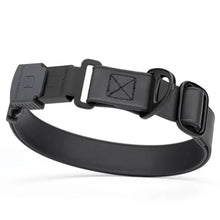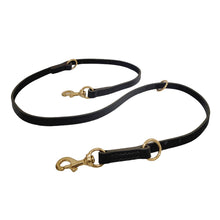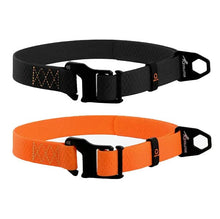Beware Of These Common Household Items That Are Toxic For Dogs

Sure, you know that chocolate and onions are toxic for dogs. But plenty of everyday household items harm dogs every year. The good news is that many accidental ingestions can be prevented through education and prevention.
According to American Humane, there are an estimated 232,000 pet poisonings a year so the problem is very real. Since its inception, the ASPCA Animal Poison Control Center (APCC) has responded to over 4 million calls regarding potential poisonings.

When dogs ingest a toxin, the consequences can range from mild gastrointestinal upset to kidney or liver failure to death. According to the APCC, the top 5 (or 79%) cases of poisonings in 2021 were from:
1. Human medications (antidepressants, ADHA, and cardiac being the main concern).
2. Food made up 14% of the cases (protein shakes and bars, xylitol, grapes, onions, and raisins being the most popular).
3. Chocolate, they got 1 call every 15 minutes.
4. Plants, indoor and outdoor.
5. Household items, such as cleaning, rodenticides, insecticides, gardening, and veterinary products such as calming chews).
Dogs can be poisoned by many products beneficial to humans, such as essential oils and vitamins. So, it’s important to know what products in and around your home have the potential to poison your dog.

To help, we’ve compiled a list of common and not-so-common toxic items that your dog may come in contact with. Of course, we can’t list them all so always pet-proof your home to make sure your dog is safe. When in doubt, always call your vet or the APCC.
Some Common Vitamins and supplements
• Vitamin D3
• Vitamin B
• Potassium
• Iodine
• Zinc
• Magnesium
• Calcium
• Alpha lipoic acid
• Iron
• Multivitamins
• 5 hydroxytryptophans (5 HTP)
• Citrus aurantium
• Caffeine such as products containing green tea and coffee extracts
• Sugar-free vitamins containing xylitol and other artificial sweeteners
• Protein bars and shakes

Popular Medications
• Tylenol
• Motrin
• Advil
• Aleve
• Antidepressants
• ADD and ADHD medications
• Beta-blockers
• High blood pressure
• ACE inhibitors
• Blood thinners
• Nicotine patches and gum
• Pain pills
• Sleeping aids
• Birth control
• Thyroid hormones
• Cholesterol-lowering medications
• Sudafed and Sudafed containing products are often marked with D for decongestant
• Cold and flu
• Creams and ointments
• Hair growth removal products containing minoxidil
Artificial Sweeteners
• Xylitol (deadly and found in everything from desserts to peanut butter, to medications)
• Birch sugar

Beverages
• Alcohol
• Energy and other caffeine-containing drinks
• Coffee and coffee grounds
• Tea
• Sugar-free containing xylitol
Foods Commonly Found in Kitchens
• Chocolate, the darker, purer, the more dangerous
• Cocoa
• Citrus peels, stems and leaves
• Macadamia nuts
• Pecans
• Grapes, raisins
• Onions, chives
• Garlic
• Yeast dough
• Baking soda
• Baking powder
• Moldy food
• Mushrooms
• Nutmeg
• Rhubarb
• Sugar-free containing xylitol or birch sugar
• Avocado
• Fruit seeds and pits
• Salt (excess)

Essential Oils and Products Containing These Natural Oils
• Anise
• Clove
• Basil
• Oregano
• Cinnamon
• Thyme
• Pine
• Peppermint
• Sweet birch
• Pennyroyal
• Tree tea, melaleuca
• Citrus fruits
• Citronella
• Bergamot
• Sandalwood
• Ylang Ylang
• Menthol
• Wintergreen
Some Popular Plants
• Azalea
• Box
• Chinaberry
• Oleander
• Rhododendron, azalea
• Wisteria
• Castor beans
• Hemlock
• English ivy
• Sago palm
• Mistletoe
• Oleander
• Yew
• Amaryllis
• Crocus
• Chrysanthemum
• Bulb plants, such as tulips
• Foxglove
• Jerusalem cherry
• Lily of the Valley
• Marijuana
• Rhubarb
• Mums
• Peony
• Daffodil
• Iris
• Snake plants
• Aloe
• Philodendron
• Succulents
• Jade plants

Things Found in The Garage
• Pesticides
• Rodent bait, traps
• Fertilizers
• Antifreeze
• Cleaners
• Fuels
• Chemicals
• Paint
• Glue
Miscellaneous Items Around The House
• Batteries
• Lithium-ion, button batteries
• Candles
• Potpourri
• Laundry detergents
• Cleaning supplies
• Scented items, such as air fresheners
• Hand sanitizers
• Sponges
• Coins
• Play-doh
• Slime
• Mothballs
• Tobacco, cigarettes
• Recreational drugs
Pet Products
• Pet vitamins and supplements
• Chews
• Joint and calming chews
• CBD oil

The above is just a sampling of the more popular items that pets are poisoned by every year. When pet-proofing your home, it may take more work than it does for kids since dogs can easily chew open child-proof bottles and containers.
If you think your pet has ingested a toxin, it’s better to be safe than sorry. The APCC operates a hotline 24 hour a day, 365-days-a-year which can be reached at (888) 426-4435 or contact a local veterinarian as soon as possible.
We hope you find this list helpful. Please share with your friends.
You may also like: 5 Health Conditions That Can Affect Your Dog's Well-being






















